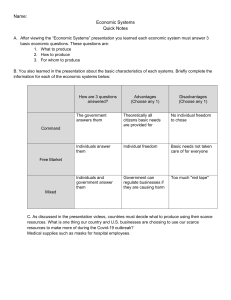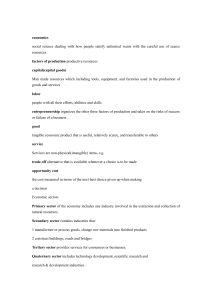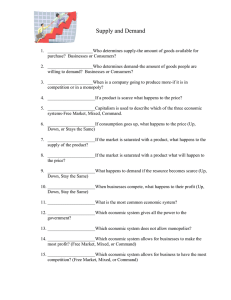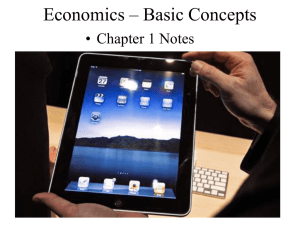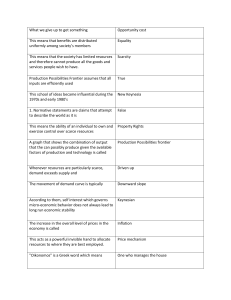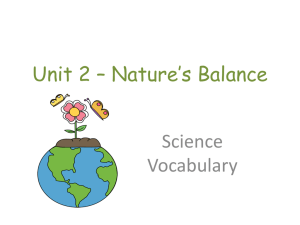180507162111-gr9-ehl-reading-comprehension-and-language-skills
advertisement
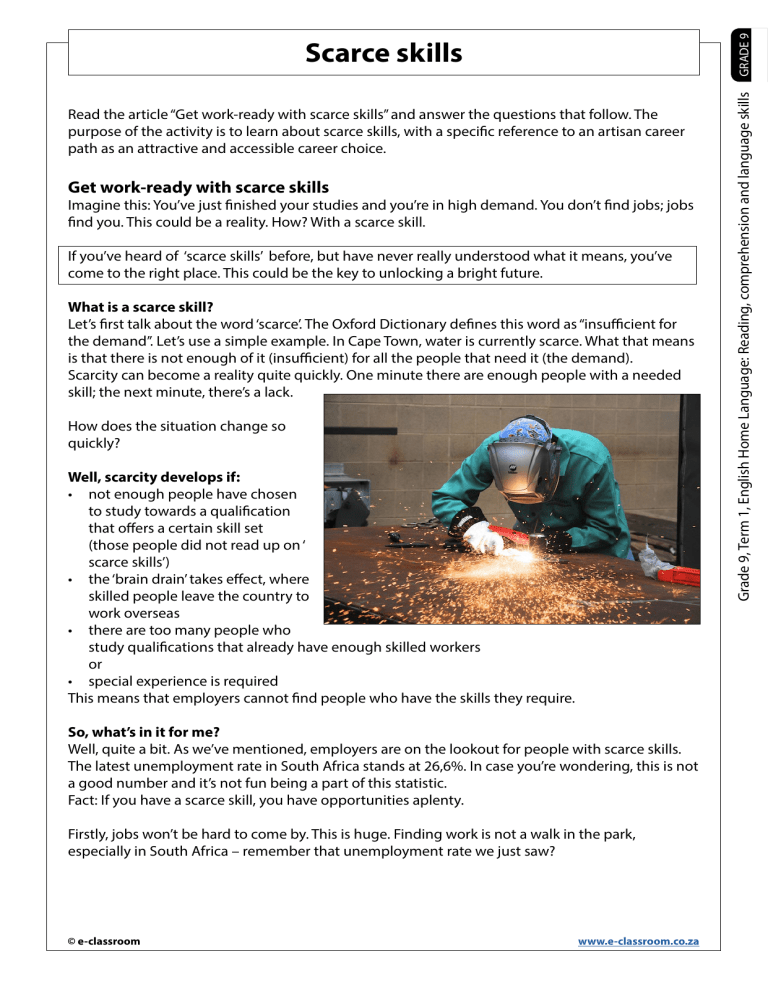
GRADE 9 Read the article “Get work-ready with scarce skills” and answer the questions that follow. The purpose of the activity is to learn about scarce skills, with a specific reference to an artisan career path as an attractive and accessible career choice. Get work-ready with scarce skills Imagine this: You’ve just finished your studies and you’re in high demand. You don’t find jobs; jobs find you. This could be a reality. How? With a scarce skill. If you’ve heard of ‘scarce skills’ before, but have never really understood what it means, you’ve come to the right place. This could be the key to unlocking a bright future. What is a scarce skill? Let’s first talk about the word ‘scarce’. The Oxford Dictionary defines this word as “insufficient for the demand”. Let’s use a simple example. In Cape Town, water is currently scarce. What that means is that there is not enough of it (insufficient) for all the people that need it (the demand). Scarcity can become a reality quite quickly. One minute there are enough people with a needed skill; the next minute, there’s a lack. How does the situation change so quickly? Well, scarcity develops if: • not enough people have chosen to study towards a qualification that offers a certain skill set (those people did not read up on ‘ scarce skills’) • the ‘brain drain’ takes effect, where skilled people leave the country to work overseas • there are too many people who study qualifications that already have enough skilled workers or • special experience is required This means that employers cannot find people who have the skills they require. So, what’s in it for me? Well, quite a bit. As we’ve mentioned, employers are on the lookout for people with scarce skills. The latest unemployment rate in South Africa stands at 26,6%. In case you’re wondering, this is not a good number and it’s not fun being a part of this statistic. Fact: If you have a scarce skill, you have opportunities aplenty. Firstly, jobs won’t be hard to come by. This is huge. Finding work is not a walk in the park, especially in South Africa – remember that unemployment rate we just saw? © e-classroom www.e-classroom.co.za Grade 9, Term 1, English Home Language: Reading, comprehension and language skills Scarce skills Which skills are scarce? There is a range of skills that make it onto the ‘scarce skills’ list. Thanks to the Department of Higher Education and Training (DHET), we know what these skills are. The DHET regularly puts together a list of the top 100 scarce skills in the country. To break it down, here are three of the major job categories in need of skilled labour: • Professionals • Technicians • Artisans/trade workers This is where things get interesting. All three of these categories contain a few jobs, some of which might interest you. Here are some of the jobs that fall into each of the categories: Jobs in the professional sector include: • Architect • Teacher • Engineer (civil, mechanical, electrical, chemical) • Finance professional (accountant, actuary) • Health professional (nurse, medical doctor, hospital pharmacist) • Information and computer professional (software developer, network analyst) • Natural and physical science professionals (geologist, veterinarian) Jobs in the technician sector include: • Chemistry technician • Computer technician • Draughtsperson • Forensic technician • Fire investigator • Manufacturing technician Jobs in the artisan/workers sector include: • Electrician • Plumber • Toolmaker • Carpenter and joiner • Welder © e-classroom www.e-classroom.co.za GRADE 9 Grade 9, Term 1, English Home Language: Reading, comprehension and language skills Other benefits include: • More funding opportunities are available to those who study towards a scarce skill qualification • There is a good chance of getting a high salary • The opportunity to progress in your career • Some scarce skills are scarce all over the world, so you could have the opportunity to work abroad GRADE 9 It’s important to note that many of the jobs on the scarce skills list require school subjects such as Mathematics (not Mathematical Literacy), Science and Information Technology (IT). Adapted from: goo.gl/kx3Vnp Please answer the following questions based on the article above. Mark allocations are a guideline only for educators. 1. Define the word ‘scarce’. (2) 2. Give a synonym and an antonym for the word ‘lack’. (2) 3. Explain what a ‘funding opportunity’ is. (2) 4. The following are examples of idioms. Describe what an idiom is, and what these mean in the context of the article. a. Brain drain (4) b. Unlocking a bright future (4) c. The game plan © e-classroom (4) www.e-classroom.co.za Grade 9, Term 1, English Home Language: Reading, comprehension and language skills Get skilled If you’re sold on the idea of developing a scarce skill, we have a game plan for you. The game plan: Study a qualification that gives you a scarce skill. This is your secret weapon to having a competitive edge in the job market. Then you can land a job in no time. 6. What is an ‘unemployment rate’? (2) 7. Name the three categories of jobs listed on the scarce skills list. (3) TOTAL: 25 marks © e-classroom www.e-classroom.co.za GRADE 9 (2) Grade 9, Term 1, English Home Language: Reading, comprehension and language skills 5. List two occupations that are considered trades.

